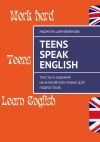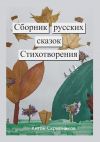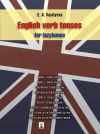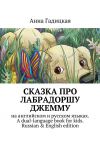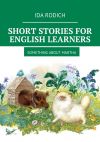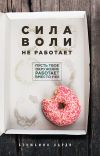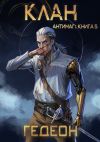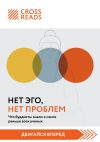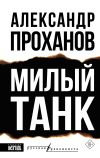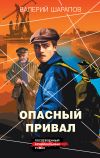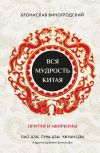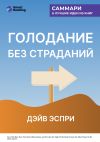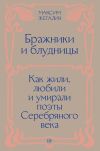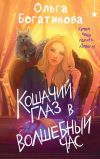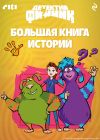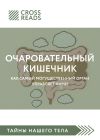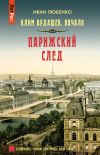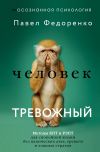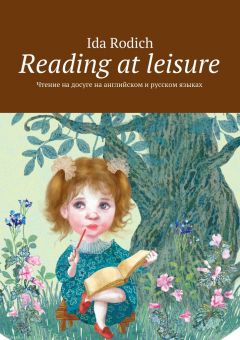
Автор книги: Ida Rodich
Жанр: Учебная литература, Детские книги
Возрастные ограничения: +6
сообщить о неприемлемом содержимом
Текущая страница: 1 (всего у книги 3 страниц) [доступный отрывок для чтения: 1 страниц]
Reading at leisure
Чтение на досуге на английском и русском языках
Ida Rodich
Иллюстратор Надия Дойчева-Бут
Корректор Лилия Карденас
© Ida Rodich, 2017
© Надия Дойчева-Бут, иллюстрации, 2017
ISBN 978-5-4485-4453-8
Создано в интеллектуальной издательской системе Ridero
All the same it is the sea
One sunny day Clara’s grandparents pick their lovely granddaughter up from home and drive her to their summer house. The road is running through the forest.
On the way Clara’s grandmother is telling the girl: «Many wild animals live in this forest.»
That is true: wolves, foxes, bears, hedgehogs and lots of birds live here. Clara knows that from her books.

Never fry a fish till it’s caught. Не дели шкуру неубитого медведя.
But Clara isn’t interested in wild animals. She likes fish. At home Clara has a large fish tank with myriads of tiny fish in it. Clara especially likes a dazzling fish with a colourful tail and bright eyes. She feeds the fish and it is thankful to the girl. When Clara gets bored, she goes up to the tank and knocks gently on the glass. The fish swims up to the water surface, gazes at Clara and opens its mouth. Clara believes that the fish is telling her something, but the water swallows its words.
Clara is looking out of the window and starts fidgeting. The car is going along a huge stretch of water. The water body is so large that Clara cannot see the other bank.
The little girl is surprised: «Look, this is a sea.» Her grandfa-ther is smiling: «It’s a lake, Clara!» But Clara is only laughing at his words:
«There is too much water and too much fish in it. Grandpa, only a sea can be this large!»
What is the correct answer?
Clara is going by car
1) to a forest.
2) to her summer house.
3) to a lake.
The girl likes fish because
1) she isn’t interested in wild animals.
2) she has a large fish tank at home.
3) fisch can be her friend.
Clara is surprised about a huge stretch of water because
1) she cannot see the other bank.
2) this is a sea.
3) only a sea can be this large.
И все-таки это море
В один солнечный день дед с бабушкой заезжают за своей очаровательной внучкой Кларой и везут ее на дачу. Дорога идет через лес.
В пути бабушка Клары рассказывает девочке: «В этом лесу живут многие дикие звери».
Это правда. Здесь живут волки, лисы, медведи, ежи и много птиц. Клара знает их из своих книг.
Но Клару не интересуют дикие животные. Она любит рыбу. Дома у нее есть большой аквариум с множеством маленьких рыбок. Особенно Кларе нравится блестящая рыбка с разноцветным хвостиком и яркими глазами. Она кормит рыбку, и рыбка ей благодарна. Когда Клара скучает, она идет к аквариуму и тихонько стучит по стеклу. Рыбка подплывает к поверхности воды, смотрит на Клару выпуклыми глазами и открывает рот. Клара верит, что рыбка что-то рассказывает ей, только вода поглощает ее слова.
Клара выглядывает из окна автомобиля и оживляется. Машина проезжает мимо огромного водоема. Водоем такой большой, что Клара не может увидеть другого берега.
Девочка поражена: «Смотрите, это же море!» Дед улыбается: «Это озеро, Клара!» Но Клара только смеется в ответ:
«В нем слишком много воды и слишком много рыб. Дед, таким большим может быть только море!»
Какой ответ правильный?
Клара едет на автомобиле
1) в лес.
2) на дачу.
3) на озеро.
Девочка любит рыбу, потому что
1) ее не интересуют дикие животные.
2) у нее дома есть большой аквариум.
3) рыбка может быть ее другом.
Клара поражена огромным водоемом, потому что
1) она не может увидеть другого берега.
2) это море.
3) таким большим может быть только море.
The cat-and-mouse game

A cat may look at a king. Не заносись, я не хуже тебя.
Sara is playing with a doll on the bench. Someone is purring next to her. The girl turns around and sees her favourite female cat Lulu. Lulu is Sara’s deftest cat. She likes catching mice and birds.
Right now she is holding something in her mouth. Suddenly the cat lets this something drop onto the ground, and the girl sees a little grey mouse. Sara has got some mice among her toys. But this mouse is different. It is alive and very nice. The mouse stands up on its legs unsteadily. It is afraid of the cat and is trembling.
The cat Lulu behaves as if she isn’t looking at the mouse. The mouse runs away. But the cat reaches it in no time and treads with her paw on its tail. Then she lets the mouse run again.
Sara feels envious. She has never played with a live mouse. «Lulu, let me play with the mouse too», says the girl to the cat.
But the cat can’t be bothered. Lulu hisses and scratches Sara.
Well, Lulu, that’s enough!
Sara calls her grandfather.
«Grandpa, I’d like to play with the mouse too» asks the granddaugther.
«No, darling. The mouse is alive. It’s scared of you» answers the girl’s grandfather.
«Poor little mouse. We’ll help you. We’ll take you home to your family now», he adds.
They take the mouse to the field and let it go. The mouse starts running away but suddenly stops and looks back at its rescuers. Perhaps it does that just out of curiosity. But Sara understands that in her own way:
«Grandpa, the mouse knows that we’ve saved its life».
«That’s quite possible, mice are not silly», Sara’s grandfather agrees with his granddaugther.
«I think the mouse wants to thank us for saving it. But it can’t speak, and that’s why it’s looking at us».
The mouse is waiting for a little bit, and then… Shoo! … It hides in the grass.
Sara is worried:
«Grandpa, what will happen if the mouse doesn’t find its home? Will the cat catch it again?»
«Don’t worry, Sara. The mouse doesn’t live alone. All its family is somewhere here. No doubt it’ll find its house».
Now Sara likes going to the field. Maybe, she will meet this mouse again and play with it. After all, Sara isn’t a cat!
What is the correct answer?
The cat is purring because
1) it loves the girl.
2) it likes catching mice.
3) it has caught a mouse.
Lulu behaves as if she isn’t looking at the mouse because
1) she is playing with the mouse.
2) the mouse is afraid of the cat.
3) she lets the mouse run.
Sara calls her grandfather because
1) the mouse is alive and very nice.
2) the mouse is scared of the cat.
3) she’d like to play with the mouse too.
Sara and her grandfather take the mouse to the field and let it go because
1) the mouse is poor.
2) the mouse isn’t silly.
3) they want to take the mouse to its family.
Игра в кошки-мышки
Сара играет с куклой на скамейке. Кто-то мурлычет рядом с ней. Сара оглядывается и видит Лулу. Лулу – самая ловкая кошка Сары. Она любит ловить мышей и птиц.
Вот и сейчас Лулу что-то держит в зубах. Вдруг кошка роняет это что-то на землю, и Сара видит маленькую серую мышку. В игрушках Сары есть мышки. Но эта мышка другая. Она живая и очень славная. Мышка неуверенно встает на свои лапки. Она боится кошки и дрожит.
Лулу делает вид, что не смотрит на мышку. Мышка бежит. Но кошка мгновенно настигает ее и наступает ей лапой на хвост. Затем она снова отпускает мышку.
Саре становится завидно. Она еще никогда не играла с живой мышкой.
«Лулу, дай мне тоже поиграть с мышкой», – говорит девочка кошке.
Но кошке нельзя мешать. Лулу шипит и царапает Сару.
«Ну, хватит, Лулу!»
Сара зовет деда.
«Дед, я тоже хочу поиграть с мышкой», – просит внучка.
«Нет, дорогая. Мышка живая. Она боится тебя», отвечает дед девочке.
«Бедная мышка. Мы поможем тебе. Мы сейчас же отнесем тебя к твоей семье домой», – добавляет он.
Вместе они несут мышку на поле и отпускают ее. Мышка пускается бежать, но потом она вдруг останавливается и оглядывается на своих спасителей. Может быть, она делает так только из любопытства. Но Сара понимает ее по-своему:
«Дед, мышка знает, что мы спасли ей жизнь».
«Вполне возможно, мыши неглупы», – соглашается дед с внучкой.
«Я думаю, что мышка хочет поблагодарить нас за свое спасение. Только она не умеет говорить, вот и смотрит на нас».
Мышка ждет еще немного, а потом.… Жух! … Она скрывается в траве.
Сара тревожится:
«Дед, а что, если мышка не найдет свой дом? Ее снова поймает кошка?»
«Не беспокойся, Сара. Мышка в одиночку не живет. Все ее семейство находится где-то здесь. Она обязательно найдет свой дом».
Теперь Сара любит ходить на поле. Может быть, она снова встретится с мышкой и поиграет с ней. В конце концов, ведь Сара – не кошка!
Какой ответ правильный?
Кошка мурлычет, потому что
1) она любит девочку.
2) она любит ловить мышей.
3) она поймала мышку.
Лулу ведет себя так, как будто бы она не смотрит на мышку, потому что
1) она играет с мышкой.
2) мышка боится кошки.
3) она дает возможность мышке бежать.
Сара зовет деда, потому что
1) мышка живая и очень славная.
2) мышка испугалась кошки.
3) она тоже хотела бы поиграть с мышкой.
Дед с Сарой несут мышку на поле и отпускают ее, потому что
1) мышка – бедняжка.
2) мышка неглупа.
3) они хотят отнести мышку к ее семье.
The hedgehog
In the summer Emily can stay in the backyard until it gets late at night. Her parents are also here, and they are talking with each other.
It’s getting dark. Suddenly Emily hears something. «Frrr…Frrr…», someone is snorting.
«Dad, who is coming so late?» asks the girl in a low voice.

A friend to all is a friend to none. Кто всем друг, тот никому не друг.
«It’s a hedgehog, Emily. In the evenings hedgehogs go round to look for some food. Don’t be afraid. They are harmless.»
«But he is snorting. Is he afraid of us?»
«No, he isn’t. Otherwise he’d cry. Look! Here he is! For safety’s sake he has curled up into a ball». The mother shows Emily a little dark ball in the grass.
«Give me a stick to touch him, Mum. I want to take a look at him».
«Be careful, Emily! He’s got needles all over his back».
«Does he have any hair?»
«Yes, he’s got some hair on his stomach and snout».
«I’ll give him to eat something. He will show us his snout».
«Let him go, darling. The hedgehog will find some food by himself.»
«But I want to see his snout and feet», says the daughter mulishly. «It is my hedgehog. He has come to me of his own free will. I’ll keep him here».
«Why do you need him?»
«He’ll protect me against angry dogs.»
«Then you’ll have to make friends with him. Leave some food for him every evening. But be careful. Don’t bring your hand close to his snout. Hedgehogs have sharp teeth.»
«Don’t worry, Dad. I’ll get along with him».
Emily looks at the hedgehog. But the hedgehog isn’t in a hurry. He waits until the girl leaves first.
At last the Emily leaves the hedgehog alone. But tomorrow she’ll be waiting for her new friend again. She’ll be feeding the hedgehog, and he’ll show her his snout. His snout must be very pretty.
What is the correct answer?
Emily and her parents can stay in the backyard until it gets late at night because
1) they want to talk with each other.
2) it is summer.
3) they’d hear something.
A hedgehog is coming so late because
1) someone is snorting.
2) in the evenings hedgehogs go round to look for some food.
3) he is harmless.
Emily wants to take a look at the hedgehog because
1) he has curled up into a ball.
2) he’s got needles all over his back.
3) she wants to see his snout and feet.
The girl will have to make friends with the hedgehog because
1) the hedgehog will show her his snout.
2) she’ll leave some food for him every evening.
3) he can protect Emily against angry dogs.
Еж
Летом Эмили может оставаться во дворе до самой ночи. Ее родители тоже здесь, и они беседуют друг с другом.
Смеркается. Вдруг Эмили что-то слышит. «Фрр… Фрр», – фыркает кто-то.
«Папа, кто это идет к нам так поздно?» – спрашивает девочка шепотом.
«Это еж, Эмили. Вечером ежи бродят в поисках пищи. Не бойся их. Они безобидные».
«Но еж фыркает! Он нас боится?»
«Нет, не боится. Иначе он бы кричал. Смотри! Вот он! Из осторожности свернулся в клубок». Мать показывает Эмили маленький темный круглый предмет в траве.
«Дай мне палку, чтобы потрогать его, мама. Я хочу его рассмотреть».
«Будь осторожна, Эмили. У ежа иголки по всей спинке».
«У него совсем нет шерсти?»
«Есть немного, только на животе и на мордочке».
«Я дам ему поесть. Он нам тогда покажет свою мордочку».
«Отпусти его, дорогая. Еж сам найдет себе еду».
«Но я хочу увидеть его мордочку и лапки», – упрямится дочка. «И вообще, это мой еж. Он сам ко мне пришел. Я его себе оставлю».
«Зачем он тебе?»
«Он будет защищать меня от злых собак».
«Тогда тебе надо с ним подружиться. Ставь ему каждый вечер немного корма. Но будь осторожна. Не подноси руку близко к его мордочке. У ежей острые зубы».
«Не беспокойся, папа. Я уж как-нибудь справлюсь с ежом».
Эмили смотрит на ежа. Но еж не торопится. Он ждет, пока девочка уйдет первой.
В конце концов, Эмили оставляет ежа в покое. Но завтра она будет ждать своего нового друга. Она будет кормить ежа, и он покажет ей свою мордочку. Его мордочка должна быть очень симпатичной.
Какой ответ правильный?
Эмили и ее родители могут оставаться до поздней ночи во дворе, потому что
1) они хотят беседовать друг с другом.
2) это лето.
3) они хотели бы что-то услышать.
Еж идет так поздно, потому что
1) кто-то фыркает.
2) по вечерам ежи бродят в поисках пищи.
3) он безобидный.
Эмили хочет рассмотреть ежа, потому что
1) он свернулся в клубок.
2) у него иголки по всей спинке.
3) она хочет увидеть его мордочку и лапки.
Девочка должна подружиться с ежом, потому что
1) еж покажет ей свою мордочку.
2) она будет оставлять ему каждый вечер еду.
3) он может защитить ее от злых собак.
Nestlings

These are early birds. Ранние пташки.
The father shows his son Emil a bird’s nest under the roof of their house. Emil is standing on a ladder and looking at baby birds in the nest. He has never seen a bird’s family before and is absolutely charmed.
The father says: « These are sparrows». Emil counts the tiny nestlings: one, two, three, four. There are four chicks in the nest. Their parents are very busy little birds. From morning to night they search around for food to feed their children. But the chicks are always hungry, chirp and want to eat more and more.
«Dad, these babies are the big eaters. They eat lots of food. What food is that?»
«As usual, different insects, bugs, worms».
«Ugh, yucky! Dad, why do they eat this much?»
«They will learn to fly soon and need plenty of energy».
«Dad, if I would eat as much as these chicks, what would I learn to do then? I can’t learn to fly».
«That’s right. People can’t fly. But you can learn to run fast».
«Can I run as fast as our dog Felix?»
«Of course. You can run even faster than Felix».
«Dad, let’s go home. I’ll eat so much that I will catch up with Felix right now».
What is the correct answer?
The father shows his son Emil a bird’s nest because
1) it is under the roof of their house.
2) Emil has never seen a bird’s family before.
3) there are four chicks in the nest.
Their parents are very busy because
1) they feed their children.
2) they search around for food to feed their children..
3) They fly high.
The chicks are always hungry, because
1) they chirp.
2) they are the biggest eaters in the world.
3) they eat lots of food.
Птенцы
Отец показывает сыну Эмилю птичье гнездо под крышей дома. Эмиль стоит на лестнице и рассматривает в гнезде птенцов. Он еще никогда не видел птичье семейство так близко и совершенно им очарован.
Отец говорит: «Это воробьи». Эмиль считает крошечных птенцов: Один, два, три, четыре. В гнезде четыре птенца.
Их родители – очень занятые маленькие птички. Они с утра до ночи ищут еду, чтобы прокормить своих детей. Но птенцы все время голодные, пищат и хотят есть все больше и больше.
«Папа, эти птенцы такие прожорливые. Они очень много едят. Что это за еда такая?»
«Обычная, разные насекомые, жуки, черви».
«Фу, как противно! Папа, а почему они так много едят?»
«Скоро они будут учиться летать, и им будет нужно много энергии».
«Папа, а, если я буду есть так же много, как птички, чему я тогда научусь? Ведь я не могу научиться летать.»
«Это верно. Люди не могут летать. Но ты можешь научиться быстро бегать».
«А я смогу тогда бежать так же быстро, как наша собака Феликс?»
«Конечно. Ты сможешь бежать даже быстрее Феликса».
«Давай пойдем домой, папа. Я съем столько, чтобы уже сейчас догнать Феликса.»
Какой ответ правильный?
Отец показывает своему сыну Эмилю птичье гнездо, потому что
1) оно находится под крышей их дома.
2) Эмиль никогда раньше не видел птичье семейство.
3) в гнезде четыре птенца.
Их родители очень заняты, потому что
1) они кормят своих детей.
2) они ищут еду для птенцов.
3) они высоко летают.
Птенцы всегда голодны, потому что
1) они пищат.
2) они – самые большие едоки в мире.
3) они очень много едят.
Bathing in roses
Every sunny morning in summer Ida’s grandmother puts a bathtub filled with water in the sun. At noon the water is warm, and Ida’s pool is ready.
Usually, grandmother sets the bathtub in the garden among the flowers. Most of them are roses. They are beautiful: red, yellow, white, pink… Ida loves roses and collects their petals. She likes gathering petals and throwing them into the bathtub until they cover all the water surface.

No rose without a thorn. Нет розы без шипов.
Then she gets in the pool and makes herself comfortable in the water. Now Ida is sitting in the bathtub surrounded by the rose petals and studying them.
The petals look like tiny colourful boats on the water. Sometimes those boats have random passengers. Ida is curious. Who is on the boats today? This time she has detected an ant on one «boat». The ant is panicking, afraid of water. Ida feels pity for the tiny insect and pulls it together with its boat out of the pool. The saved ant races straight away to its nest.
After this adventure Ida joyfully continues playing in the water. She is making her own multicolored roses. They are fantastic! One petal is pink, the other is orange, and the third one is blue. Red, white, yellow petals take their turns too.
Soon the water surface in the bathtub and the ground around it are lovely decorated. Ida admires her wonderful flowers. She draws herself up to the full height to take a good look at these unique patterns.
Suddenly Ida notices that she is also covered in roses. The petals are everywhere: on her hair, hands, legs and face.
Grandmother is coming with a watering can.
«Grandma, look here, my flowers are so beautyful!» Ida proudly shows the patterns to her grandmother.
«Well, your flowers are great», says grandmother. «But I think you now look like a flower too. And for me this flower is the most beautiful».
Ida would like to take a look at herself in her full glory. But unfortunately, there is no mirror in the garden.
«Come on, Ida, I’ll water you. My favorite flower should grow quickly».
Grandmother washes all the petals away. The girl gets out of the water. For now her amusing playing in the pool is over.
What is the correct answer?
Ida’s grandmother puts a bathtub filled with water in the sun because
1) she does that every sunny morning in summer.
2) she sets the bathtub among the flowers.
3) she makes Ida’s pool.
Ida loves roses and collects their petals because
1) she likes gathering petals.
2) they are beautiful.
3) she likes making her own multicolored roses.
Ida’s roses are fantastic because
1) ants are swimming on her petals.
2) roses are wonderful flowers.
3) they are multicolored roses: one petal is pink, the other is orange, and the third one is blue. Red, white, yellow petals take their turns too.
Купание в розах
Каждое солнечное утро летом бабушка ставит ванну для купания, наполненную водой, на солнце. К обеду вода нагревается, и бассейн для Иды готов.
Обычно бабушка ставит ванну в саду среди цветов. Большинство из них розы. Они прекрасны: красные, желтые, белые, розовые… Ида любит розы и собирает их лепестки. Ей нравится собирать лепестки и бросать их в ванну, пока они не покроют всю поверхность воды.
Затем она заходит в бассейн и удобно устраивается в воде. Теперь Ида сидит в ванне, окруженная лепестками роз, и изучает их.
На воде лепестки выглядят как крохотные разноцветные лодочки. Иногда в лодках оказываются случайные пассажиры. Ида любопытна. Кто же сегодня на них плывет? На этот раз на одной из лодок Ида обнаруживает муравья. Муравей в панике от страха перед водой. Иде жаль крошечного насекомого, и она вытаскивает его из бассейна вместе с лодкой.
Спасенный муравей тут же бежит к своему гнезду.
После этого приключения Ида с удовольствием продолжает играть в воде. Она делает свои собственные розы с разноцветными лепестками. Они фантастические! Один лепесток у них розовый, другой оранжевый, третий голубой. Затем идут красные, белые, желтые лепестки.
Вскоре поверхность воды в ванне и вся земля вокруг нее превосходно украшены. Ида восхищается своими чудесными цветами. Она встает во весь рост, чтобы хорошо рассмотреть эти бесподобные узоры.
И тут Ида замечает, что и она сама тоже покрыта розами. Лепестки повсюду: на волосах, руках, ногах и на лице Иды.
Вот идет бабушка с лейкой.
«Бабушка, смотри, мои цветы такие красивые!» Ида гордо показывает бабушке на свои узоры.
«Да, твои цветы великолепные», – говорит бабушка. «Но я думаю, что и ты тоже теперь выглядишь как цветок. И этот цветок для меня самый красивый».
Иде хотелось бы посмотреть на себя во всей своей красе. Но, к сожалению, в саду нет зеркала.
«Давай, Ида, я полью тебя. Мой любимый цветок должен быстро расти». Бабушка смывает с нее все лепестки. Девочка выходит из воды. На этом ее интересная игра в бассейне закончилась.
Какой ответ правильный?
Бабушка Иды ставит на солнце ванну, наполненную водой, потому что
1) летом она делает это каждое солнечное утро.
2) она ставит ванну среди цветов.
3) она делает бассейн для Иды.
Ида любит розы и собирает их лепестки, потому что
1) она любит собирать лепестки.
2) они красивые.
3) она любит делать свои собственные розы с разноцвет-ными лепестками.
Розы Иды фантастические, потому что
1) муравьи плавают на их лепестках.
2) розы – чудесные цветы.
3) это розы с разноцветными лепестками.
Внимание! Это не конец книги.
Если начало книги вам понравилось, то полную версию можно приобрести у нашего партнёра - распространителя легального контента. Поддержите автора!




